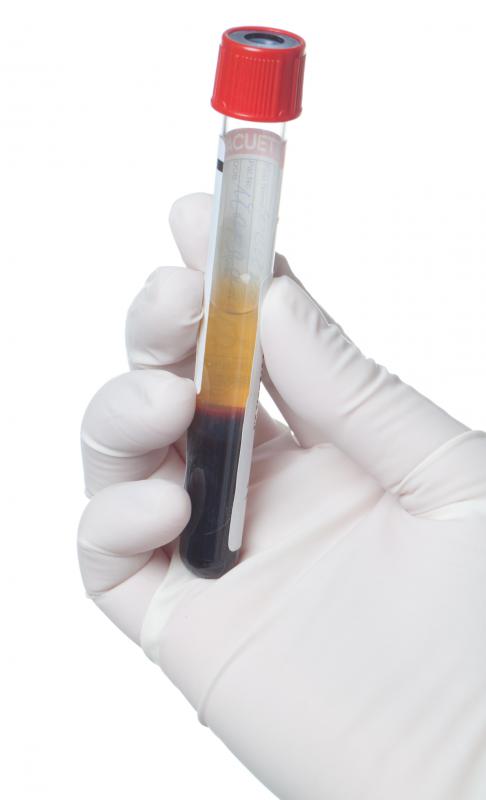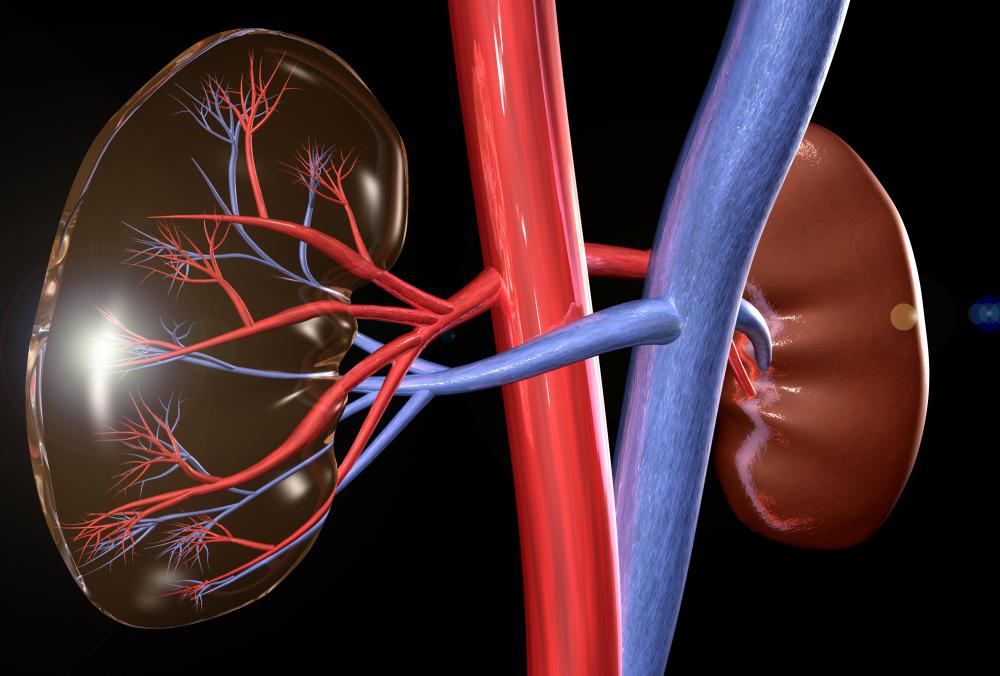At TheHealthBoard, we're committed to delivering accurate, trustworthy information. Our expert-authored content is rigorously fact-checked and sourced from credible authorities. Discover how we uphold the highest standards in providing you with reliable knowledge.
What are the Criteria for Being a Kidney Transplant Donor?
In order to be an eligible kidney transplant donor, an individual must meet a series of age, weight, compatibility, and health restrictions. The primary requirement is that the donor be in good general health, have a compatible blood type with the recipient, and no history of kidney disease. Donors must also be of legal age to give consent, but not too old to donate.
Potential kidney transplant donors are carefully screened before submitting to a donation operation. The process includes blood tests, a general review of physical and mental health, and examination of the donor’s medical history. Testing is extensive, and can take several weeks to complete.

It is necessary to conduct three blood tests in order to determine if there is a match between a kidney transplant donor and recipient. The first test determines the blood type of the donor. Then, in a process called cross-match, the donor’s blood is mixed with the recipient’s blood so that they can be studied for reactions to each other. If the blood samples are compatible, the donor’s blood is tested again for diseases and disorders.

Kidney transplant donors must also pass a series of medical tests. They are examined via x-ray, urine tests, computed axial tomography (CAT) scans, and electrocardiogram (ECG). Donors usually undergo mental examination and counseling in order to ensure that they are able to handle the operation and its effects. Regular health maintenance tests, including screening for diseases, must also be passed.
A kidney transplant donor must be at least 18 years of age in order to legally give consent for the operation. The donor should also be no older than 60. Depending on the health of the donor, the upper age restriction may be relaxed slightly.

It must also be determined if the donor is willingly undergoing the procedure and is not responding to outside pressure or making the donation for reasons that may prove problematic in the future. Donors are often encouraged to thoroughly educate themselves on the process and outcome of kidney donation in order to be sure that they are making the right decision. It is important that the donor does not make a decision too quickly or bases it on an overly emotional reaction to the needs of the recipient.
There is typically another, less comprehensive donor examination required a week before the surgery in order to ensure that the individual is still in good health. If the kidney transplant donor becomes ill at any time before the surgery, the procedure can be canceled. In some instances, an illness contracted after a successful initial health screening can permanently disqualify a donor.
AS FEATURED ON:
AS FEATURED ON:













Discuss this Article
Post your comments